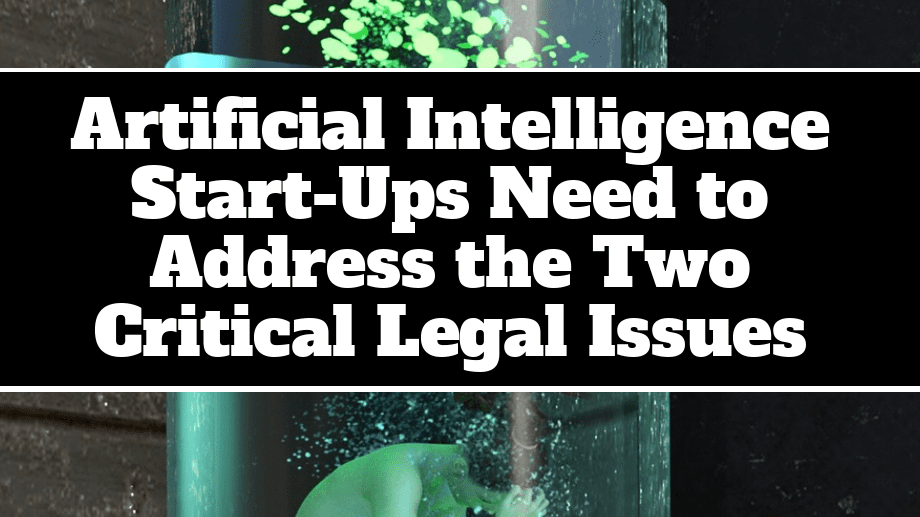Enrico Schaefer - February 1, 2023 - Artificial Intellience

Summary: (full article below) The first issue that AI companies need to address early is that they are operating in a SaaS environment. AI companies typically do not provide a license to download or use their software. Users don’t need a license since they don’t download the AI engine, database, or software. Instead, subscribers access AI software, which is controlled and hosted on the company’s servers.
AI projects must consider the second issue of identifying and protecting their IP – trade secrets, trademarks, and copyrights. If your AI project uses someone else’s AI engine, ensure they are indemnifying you against copyright issues based on the data set they created for their AI algorithm.
View the video or read the article below for more information.
The number of technology businesses being created on top of these AI databases daily is staggering. Here are the two biggest issues that these new AI companies need to address.
The first legal issue involves the upstream and downstream software-as-service terms. A SaaS agreement is not a license agreement. Users don’t download your software to use a software-based cloud service. Subscribers access the software through a website, API, plugin, or mobile app, which the software owner controls and is hosted on the software owner’s servers. There are two SaaS agreements you need to consider.
The first is the upstream Service agreement with any provider of AI database and LLM services. Most new artificial intelligence and machine learning companies are connecting to a third-party AI engine to build something new on top of that engine. OpenAI allows companies to use its engine through an API to commercialize the service. When you connect to a third-party API (such as OpenAi offers), you connect to their service under their SaaS contract. You need to have your AI lawyer review the SaaS terms and use policies to ensure your AI company can comply with the terms, that those service terms are fair, and that you are reducing your legal risk as much as possible.
All subscription-based AI projects must have a solid software as a service agreement. The second AI projects need to do is you need to make sure they identify and protect their IP – trade secrets, trademarks, and copyrights. If your AI project uses someone else’s AI engine, ensure they are indemnifying you against any copyright issues they may encounter based on the data set they created for their AI algorithm.
We are seeing more lawsuits filed by copyright owners against AI projects alleging that the AI project used copyright-protected text or images when creating their database. An increase in AI litigation is expected. It will take decades for courts to figure out how to apply the law to IAI issues and projects.
Every AI subscription service needs to do an IP audit, develop an IP protection strategy, review any upstream software as a service agreement, and draft a SaaS for subscribers. While there are certainly more legal issues to tackle and legal projects for your AI attorneys to manage, these issues must be addressed before your project launch.
Planning and drafting an enforceable SaaS agreement takes a skilled business and technology-savvy attorney. Every time you release a new update, those changes or additions should be reviewed, notice provided by users, and affirmative assent by those subscribers.